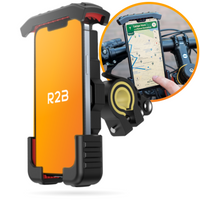No Products in the Cart

What is the difference between a laptop and a chromebook?
Time to read 4 min
Time to read 4 min
When choosing between a laptop and a Chromebook, you might be wondering: what is the difference between a laptop and a Chromebook? A Windows runs on Windows OS, while a Chromebook runs on ChromeOS. ChromeOS works primarily with web-based applications and you can download most applications from the Chrome WebStore and the Google PlayStore.
In this blog, we’ll discuss the difference between a Chromebook and a laptop, and why you might choose one over the other. We’ll dive into the benefits of a Windows computer with its internal hard drive and versatility in installing programs. We’ll also explain how a Chromebook works with ChromeOS, the Chrome WebStore, and the Google PlayStore for Android applications. We’ll also discuss how to store files, why Chromebooks don’t need a separate virus scanner, and how they automatically scan for malware. Read on to find the right Chromebook or laptop for your needs.
The difference between a laptop and a Chromebook is mainly about the operating system and the way they handle applications. A Windows laptop runs on the Windows operating system, while a Chromebook runs on ChromeOS. ChromeOS works mainly with web applications and apps from the Chrome WebStore and Google PlayStore, while a Windows can download and install programs from various sources.
Chromebooks often have limited internal storage, as they are focused on cloud-based working with tools such as Google Drive and Google Docs. For certain tasks, such as video editing or heavy processor-intensive programs, an average Windows or MacBook is often more suitable.
A Windows offers versatility and is suitable for a wide range of tasks, from office work to gaming. With a Windows you can download and install a variety of programs, which provides a high degree of flexibility.
These laptops often have a large internal hard drive for storing many files and programs. In addition, you do not need a good internet connection to use most applications, unlike a Chromebook.
For heavy tasks like video editing or cloud gaming, Windows offers better performance thanks to powerful processors like Intel Core. In addition, with Windows , you have the possibility to run both educational apps and professional software. There is also a significant difference between a laptop or macbook.
ChromeOS is a lightweight operating system developed by Google specifically for Chromebooks. Chrome OS runs primarily on web applications and apps from the Chrome WebStore and Google Play Store, giving you easy access to a wide range of applications. ChromeOS works seamlessly with Google's ecosystem, including Google Drive, Google Docs, and other Google services.
You’ll need a good internet connection to get the most out of a Chromebook, as many of its features rely on cloud-based services. While Chromebooks have a limited internal hard drive, you can always use additional storage in the cloud. This makes Chromebooks ideal for users who work primarily online.
With a Chromebook, storage is often limited to a small internal hard drive, as the focus is on cloud storage via Google Drive. You can purchase additional storage to store more files, but most apps and data are stored in the cloud. This is in contrast to a Windows laptop, which typically has a larger internal hard drive for storing files physically on the device. The advantage of cloud storage is that you can access your files from anywhere as long as you have an internet connection. However, if you often work with large files, such as videos, a laptop with larger internal storage may be more suitable.
Chromebooks are known for their strong security, as Chrome OS is regularly updated and automatically scans bad software. This way, the malicious software is scanned without you noticing. As a result, you usually do not need a separate virus scanner. With a Windows laptop, you have to install an antivirus program yourself and perform regular updates to stay protected against malicious software.
Chromebooks are therefore easier to maintain for less technical users. For those who prefer to manage their own security, a Windows laptop offers more control and flexibility. Regardless of the device, it is important to always stay up to date with the latest security patches and updates.
Chromebooks are optimized for productivity with Google’s suite of applications such as Google Docs, Sheets and Slides, all of which are cloud-based. This makes it easy to collaborate and share documents. A Windows laptop, on the other hand, offers the ability to install a wide range of software, including Microsoft Office and other productivity applications.
While Chromebooks rely on a good internet connection to function optimally, Windows laptops can perform many tasks offline. If you work a lot with specific software that is not available in the Chrome Web Store, a Windows laptop is probably a better choice.
If you’re wondering what the difference is between a laptop and a Chromebook, our laptop stand is perfect for both. Whether you’re using a Windows laptop for downloading programs or a Chromebook running ChromeOS with access to the Chrome Web Store and Google Play Store, this stand provides the stability and ergonomics you need. With enough room for internal hard drives and external SSDs, it supports an average-sized Windows laptop, a MacBook, or a Chromebook laptop, ideal for productivity tools such as the Google Chrome web browser, Google Docs, and Google Drive.
Our laptop stand helps you keep your workspace organized and use your device efficiently, whether you're editing videos, cloud gaming, or just storing files. Order now to optimize your workspace!



